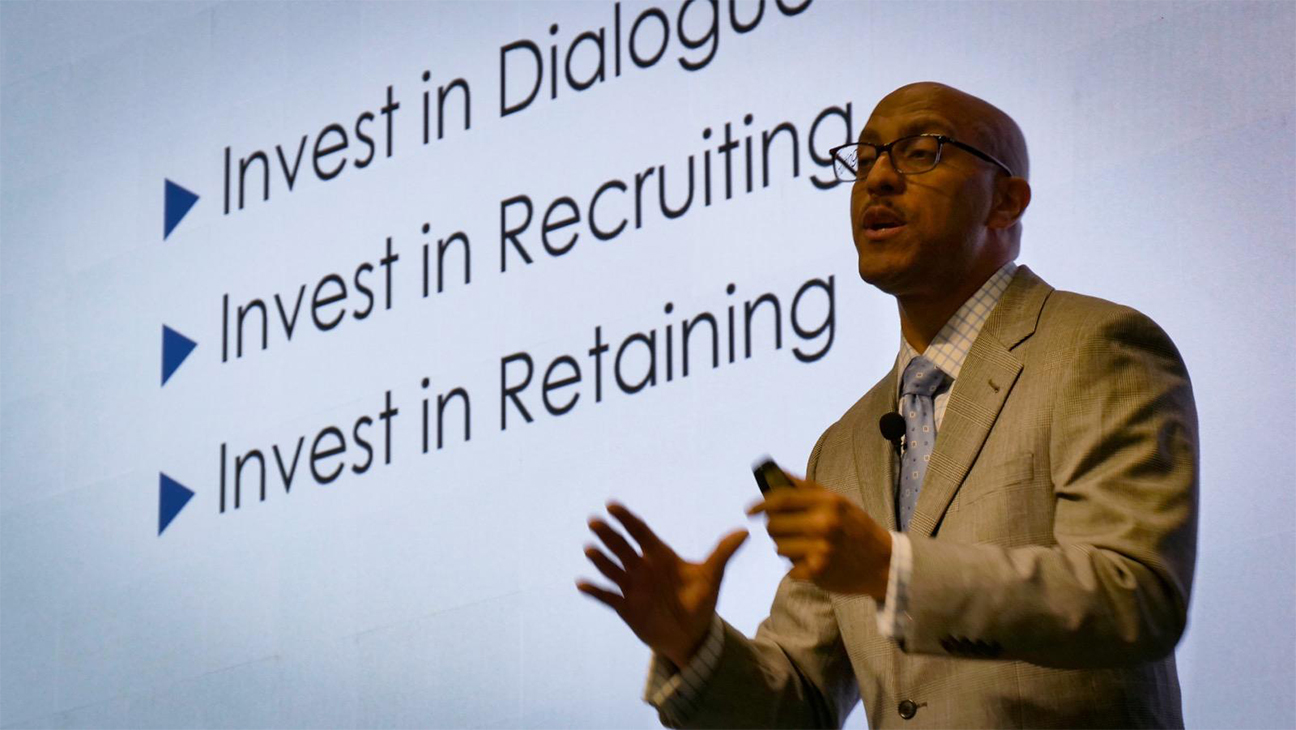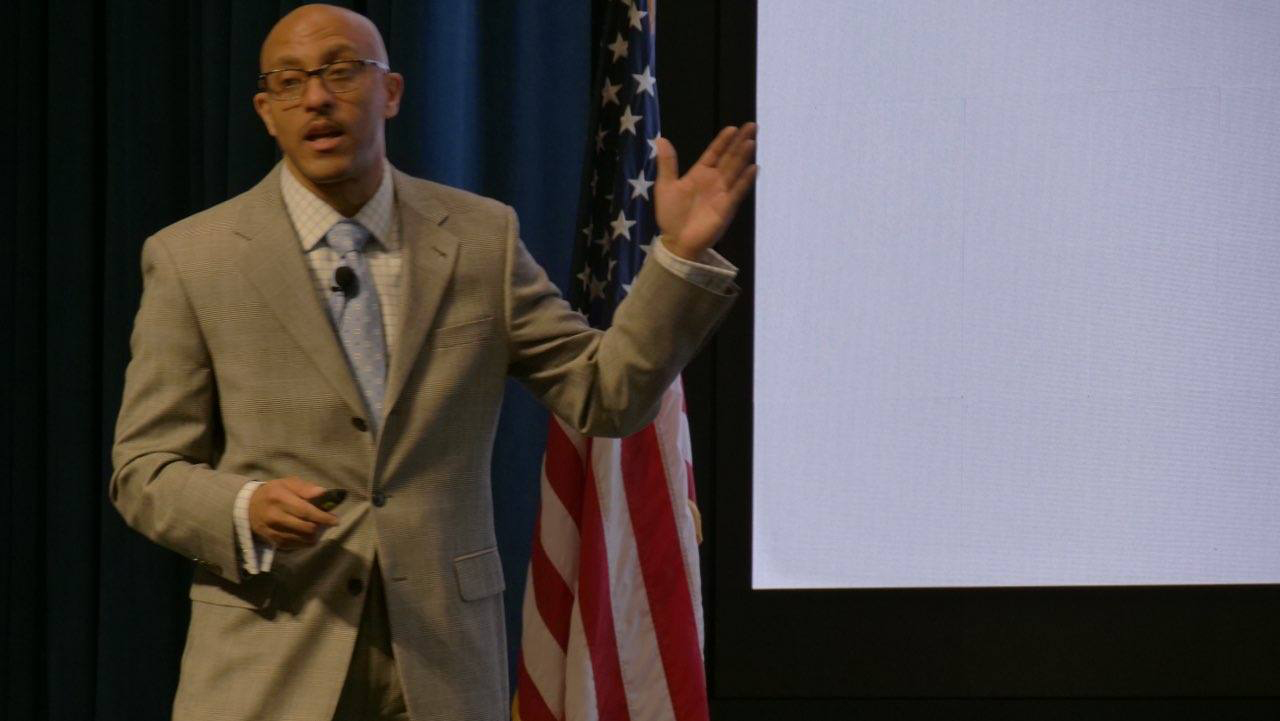OSU Professor: “We can’t fall into the color-blind trap”
WRIGHT-PATTERSON AIR FORCE BASE, Ohio – The Air Force Research Laboratory Diversity and Inclusion speaker series continued Aug. 12 during a virtual and in-person event held at the Air Force Institute of Technology’s Kenney Auditorium.
Dr. Hasan Kwame Jeffries, Associate Professor of History at The Ohio State University, spoke during the event, themed “Making Sense of the Moment: Race and Racism in America Today.”
The event was broadcast live on YouTube and ZoomGov to ensure maximum participation and safety of those wanting to be part of the event during the COVID-19 pandemic.
“The issues that we are now having a reckoning with are not limited to the military by any stretch of the imagination,” said Jeffries. “This is a national problem, but we all benefit if we have an honest conversation so we can come up with effective solutions to the problems that we face.”
During his presentation Jeffries provided a presentation about the history of racism in America, stretching back to Aug. 20, 1619 when the first group of “20 and odd” enslaved Africans were purchased by colonists.
“Race is biologically meaningless, but it is socially meaningful,” Jeffries said. “For the last 500 years of human history, we have used race to create hierarchy in society. We have used race to separate and segregate people, to exploit, to dehumanize. It is socially relevant, so it can’t be ignored.”
Jeffries also spoke about how race is also culturally relevant.
“In the U.S. we use race as a stand-in for cultural inheritance. We use race as a stand-in for ancestry. Because we use race as a stand-in, we can’t fall into the color-blind trap. Although we know race biologically is meaningless, although we know it has been used to create hierarchies and cause harm, because we use it as a stand-in for cultural inheritance, we can’t ignore it. We can’t pretend that we don’t see race, because we do,” said Jeffries.
According to Jeffries, psychologists state that by the time children – babies, infants, are 3-4 months old, they are able to distinguish people by race because they pick up on ques from their parents and caregivers.
“The problem with talking about race is not that we actually do it. The problem is when we discriminate against people based on it,” said Jeffries.
He also spoke about how racism manifests itself on a personal and individual level and structurally, with how racism has been embedded into entire systems that create different outcomes based upon race such as housing.
Secretary of Defense Dr. Mark Esper said in a June memorandum sent to all DOD personnel that the United States Military is an institution that embraces diversity and inclusion, and rejects hate and prejudice in all forms.
“We have led on these issues throughout our history but know that we as a military are also susceptible to the forces of bias and prejudice, whether seen or unseen, deliberate or unintentional. These things have no place in our military because they can degrade the morale, cohesion, and readiness of our force. This is why we must keep working to do better,” Esper said in the memo.
“The need to have candid, respectful dialogue with colleagues on a multitude of topics has never been more crucial,” said Dr. Deniese Key, AFRL Aerospace Systems Directorate Learning Officer. “Sharing our perspectives, drawn from our backgrounds and experiences, helps us gain a fuller understanding of our environment. This is why open dialogue is critical to helping our people understand and support each other. We were honored to have Dr. Jeffries come and talk with us today.”
s

Dr. Hasan Kwame Jeffries, Associate Professor of History at The Ohio State University, spoke during an AFRL Diversity and Inclusion speaker series event, themed “Making Sense of the Moment: Race and Racism in America Today,” Aug. 12 at the Air Force Institute of Technology. (U.S. Air Force photo/Keith Lewis)

